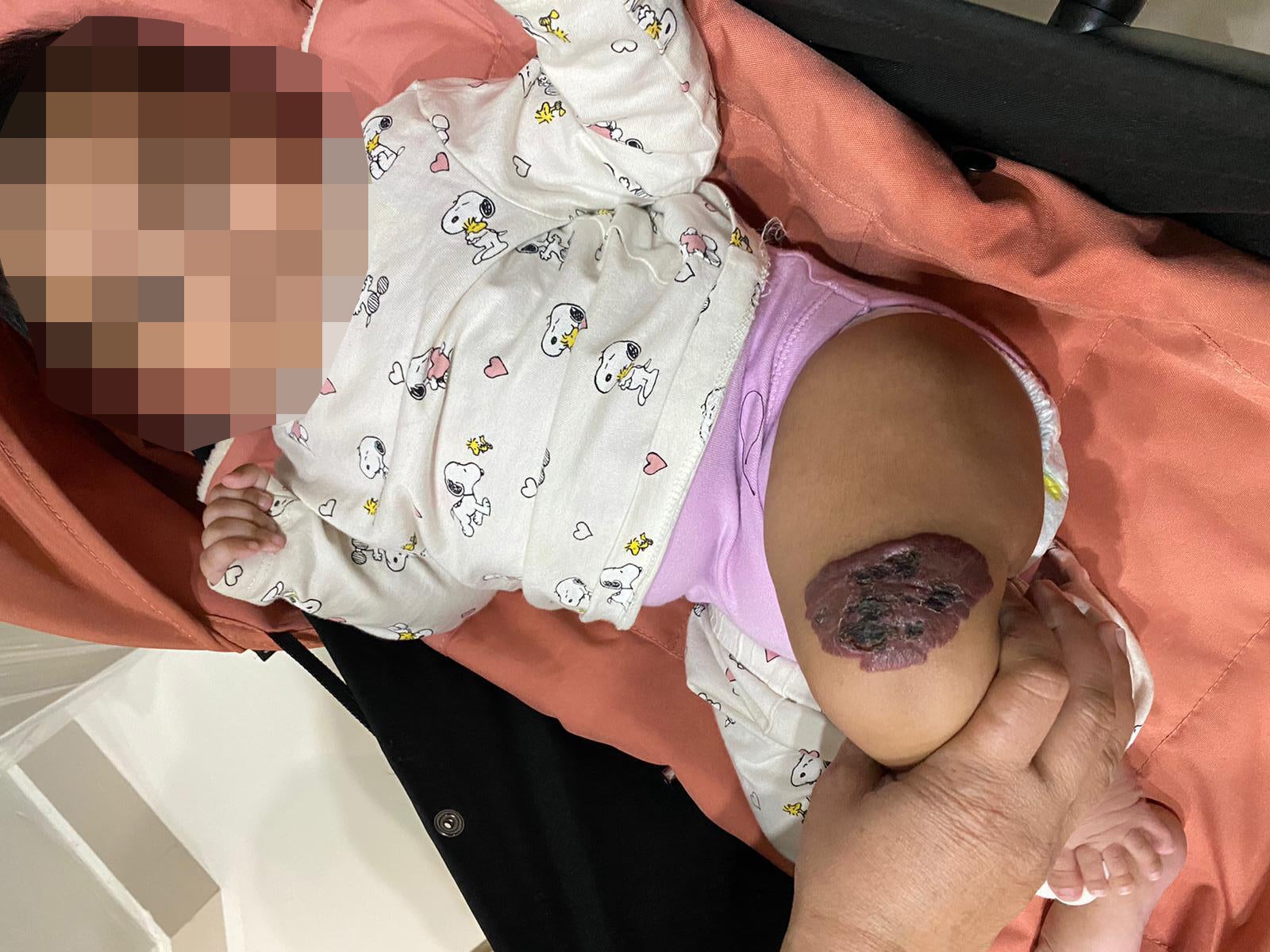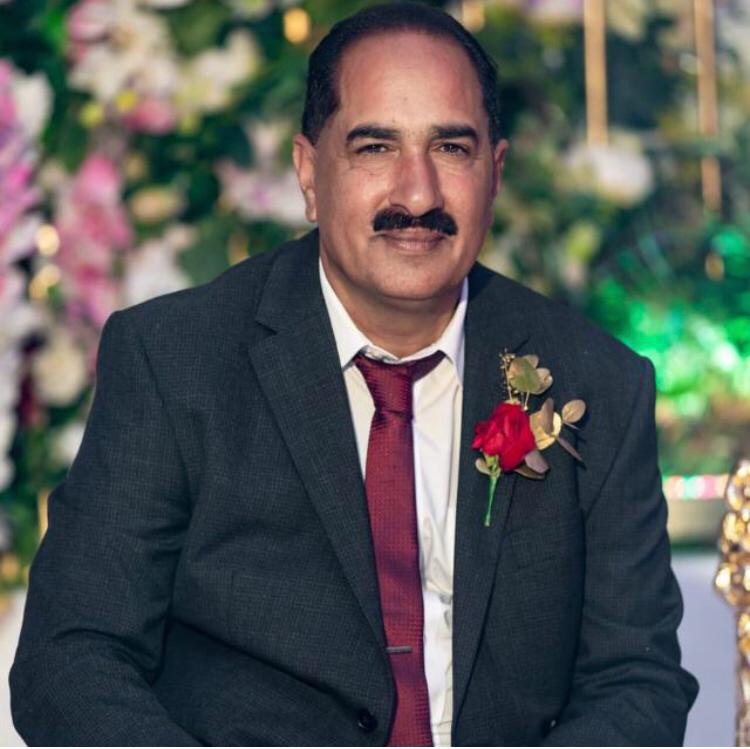Sick and disabled people denied medical treatment and facilities in hotel quarantine ‘in breach of law’
Exclusive: Baby blocked from going to A&E and man who had heart attack are among individuals only allowed to leave quarantine after legal action

Your support helps us to tell the story
From reproductive rights to climate change to Big Tech, The Independent is on the ground when the story is developing. Whether it's investigating the financials of Elon Musk's pro-Trump PAC or producing our latest documentary, 'The A Word', which shines a light on the American women fighting for reproductive rights, we know how important it is to parse out the facts from the messaging.
At such a critical moment in US history, we need reporters on the ground. Your donation allows us to keep sending journalists to speak to both sides of the story.
The Independent is trusted by Americans across the entire political spectrum. And unlike many other quality news outlets, we choose not to lock Americans out of our reporting and analysis with paywalls. We believe quality journalism should be available to everyone, paid for by those who can afford it.
Your support makes all the difference.Sick and disabled people have been denied basic facilities and medical treatment while in hotel quarantine in what lawyers say is a breach of the law.
The government has been ordered to release a number of individuals from hotels where they had been required to self-isolate after returning from red list countries, after legal action was taken over the detrimental impact quarantine was having on their physical health.
In one case, a four-month-old baby with a severe leg infection was prevented from going to A&E for hours by hotel staff. In another, a diabetic man suffered a heart attack after he was denied facilities to store his insulin and not given food to meet his dietary requirements.
Labour’s shadow immigration minister Bambos Charalambous accused ministers of “failing” to implement a strong hotel quarantine system and in turn leaving little time for “proper risk assessments and implementing best practice”, putting the lives of those in quarantine “in danger”.
Since 15 February, all British residents who visit or pass through countries that are on the “red list” – of which there are currently 50 – have been required to quarantine for 10 days in a hotel, which they pay for, as part of measures to reduce the transmission of coronavirus.
The Department of Health and Social Care states on the government website that there are “some extremely limited circumstances” where, due to “pre-existing severe medical conditions or vulnerabilities”, an individual may be exempt from this process.
It claims there is a “package of medical and welfare support in managed quarantine available to all, and emergency healthcare is available”.
However, The Independent is aware of three cases where unwell individuals were denied an exemption from managed quarantine and were then denied basic facilities and medical treatment in the hotel.
‘I was thinking I was going to die’
In one case, the High Court ordered the release of British-Pakistani man from hotel quarantine after he suffered a heart attack and almost died.
Rafiq Mohammed, 58, who is severely diabetic, had gone to Pakistan to visit his critically ill parents on 27 February and returned on 18 May.
On arrival at the President Hotel Russell Square, where he was required to quarantine and had paid £1,750 for 10 nights, Mr Mohammed discovered there was no fridge in his room in which to store his insulin.
He went to the hotel reception and showed the staff a doctor’s note stating that he had been prescribed a specific type of insulin that needed to be stored at a certain temperature.

However, Mr Mohammed was told to return to his room and not provided with a place to store his medication.
After a few hours of the insulin being kept at the wrong temperature it became useless. He started to feel unwell and needed fresh air. He told hotel staff this but he says he was left waiting for more than an hour.
“My back was hurting, my tummy was hurting. I had a can of Coke but I couldn’t drink it. I kept ringing them and begging, ‘send me somebody’. I was thinking I was going to die,” he told The Independent.
Eventually a security guard knocked on his door and said he could escort him outside. At around 8pm, while he was outside, Mr Mohammed collapsed and had to be taken to hospital in an ambulance.
He woke up the following morning and was told he had suffered a heart attack. He had a stent inserted into his heart later that day.
Mr Mohammed contacted his solicitor while in hospital and the High Court ordered that he be exempt from hotel quarantine.
However, when he was discharged on 25 May, he was told he had to return to the hotel. He was driven there at around 5pm. Only after his solicitor threatened further legal action was Mr Mohammed released from the hotel, at around 1am.
‘It felt like we were being punished’
In another case, a four-month-old baby with a severe leg infection was prevented from going to hospital for more than eight hours.
The child, along with her mother, father and two siblings, aged six and four, had been in Pakistan to visit elderly relatives. The country had been placed on the red list while they were there, and after some difficulty booking return tickets, they flew back to the UK on 2 May.
The baby, Aleha, was suffering from a haemangioma, or vascular tumour, and had developed an acute infection resulting in intense pain. She had been examined in Islamabad shortly before their returned to Britain and medics there had recommended she get a thorough examination as soon as possible.
Her parents applied for an exemption from hotel quarantine on the basis of her health, as well as the fact that their six-year-old son has severe autism, but this request was rejected.

“We were quite frightened. If it was only me and my husband having to quarantine it would be okay, but with our unwell baby and autistic son we were really nervous,” said her mother, Zahra Sohaib.
Soon after arriving at the Millennium Gloucester Hotel in Kensington, following long waits at Heathrow airport, Aleha developed a high temperature. The parents phoned their health visitor who said she must get urgent medical treatment.
“We called the reception and told them we needed to go to A&E. They said we weren’t allowed. I was trying to explain to them for a few hours. We didn’t know what to do,” Ms Sohaib said.
“We were being treated like we were lying. We were fighting them to let us go to hospital. It felt like we were being punished.”
Eventually, at around 2am, Aleha was admitted to hospital, where she remained with her mother for three days while her leg was treated.
During this time the family contacted a lawyer, who sent a pre-action letter to the government demanding that the family be exempt from hotel quarantine. This was granted, allowing the family to go home and complete their self-isolation there.
Ms Sohaib said of the experience: “I felt scared. It was awful. If we hadn’t got to the hospital by then our daughter could have become seriously ill.”
‘There was no compassion’
In a third case, an 81-year-old disabled woman who had travelled to Pakistan to attend a funeral required urgent hospital treatment after the hotel in which she had to quarantine was unable to provide disability facilities.
The woman, who has had two Covid vaccinations, suffers from heart failure, asthma, diabetes and rheumatoid arthritis. She cannot walk and requires a female carer and specialist furniture to meet her daily needs.
However, a request for her to be exempt from hotel quarantine submitted by her son, Mohsin Shah, 25, who travelled with her to and from Pakistan, was refused by the government.
He subsequently requested a hotel room with a lift frame and bed rails, but was informed by the hotel, Radisson Blu Hotel in Heathrow, that this would not be possible.

His mother’s health began to quickly deteriorate while in the hotel. She struggled to use the toilet and, as a result, stopped taking her medication, which requires her to use the toilet frequently.
The excess water in her body resulted in the swelling of both legs and ankles and, eventually, in a severe infection in her leg.
This resulted in an urgent visit to A&E, where she remained for several hours. An exemption from hotel quarantine was granted after their lawyer sent a pre-action letter to the government.
“There was no compassion for an 81-year-old woman. Everything was in front of them. She was worn out and weak, her leg was oozing,” said Mr Shah.
“She’s been crying her eyes out. She feels she was humiliated and degraded. She’s not eating properly, she’s not sleeping properly.
“If she’d just been able to go home in a taxi from the airport she would have been in contact with far fewer people, but she had to take multiple taxis and move between the hotel and the hospital. It’s horrific.”
Muhammad Zahab Jamali, partner and barrister at Ashton Ross Law, who represented all three clients, accused the government of “completely failing” to fulfil its duty to provide “basic facilities” for sick and disabled people in managed quarantine facilities.
“There is a complete lack of coordination between different teams of the Department of Health and Social Care, which is leading to a failure to cater for basic medical needs in a breach of human rights,” he said.
A spokesperson for Imperial London, which owns the President Hotel Russell Square, said: “We do not believe it would be appropriate to comment at this time.”
A spokesperson for Edwardian Hotels London, which owns the Radisson Blu Hotel, said the situation with Mr Shah’s mother was sensitive and that hotel staff did all they could to accommodate her. They said the hotel’s medical team were in daily contact with the guest.
Millennium Hotels did not respond to a request for comment.
The Department of Health and Social Care said it did not comment on decisions by the independent judiciary.
Subscribe to Independent Premium to bookmark this article
Want to bookmark your favourite articles and stories to read or reference later? Start your Independent Premium subscription today.
Join our commenting forum
Join thought-provoking conversations, follow other Independent readers and see their replies
Comments